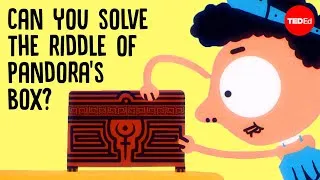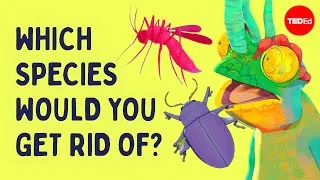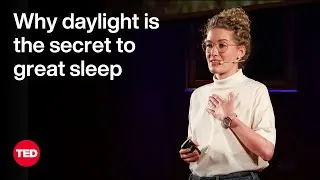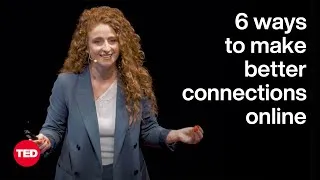請雙擊下方英文字幕播放視頻。
譯者: wentzu chen
審譯者: Joyce Chou
00:15
I'm a garbage man.
0
15260
3000
我的工作是清潔垃圾
00:18
And you might find it interesting that I became a garbage man,
1
18260
3000
原因還蠻有趣的,我之所以選擇這個行業
00:21
because I absolutely hate waste.
2
21260
2000
正因為我極度厭惡垃圾
00:23
I hope, within the next 10 minutes,
3
23260
3000
接下來十分鐘的演講
00:26
to change the way you think
4
26260
2000
我希望能改變大家
00:28
about a lot of the stuff in your life.
5
28260
2000
對生活周遭物品的看法
00:30
And I'd like to start at the very beginning.
6
30260
2000
就從最早的時期開始講起
00:32
Think back when you were just a kid.
7
32260
2000
回想一下小時候
00:34
How did look at the stuff in your life?
8
34260
2000
你怎麼看待生活中的東西?
00:36
Perhaps it was like these toddler rules:
9
36260
4000
可能像一般小朋友心中的這套規則一樣
00:40
It's my stuff if I saw it first.
10
40260
3000
我先看到的東西都是我的
00:43
The entire pile is my stuff if I'm building something.
11
43260
4000
我在堆東西時成堆都是我的
00:47
The more stuff that's mine, the better.
12
47260
3000
我的東西愈多愈好
00:50
And of course, it's your stuff if it's broken.
13
50260
3000
當然壞掉的都算是別人的
00:53
(Laughter)
14
53260
2000
(笑聲)
00:55
Well after spending about 20 years in the recycling industry,
15
55260
2000
從事回收產業二十年後
00:57
it's become pretty clear to me
16
57260
2000
我更清楚地體認到
00:59
that we don't necessarily leave these toddler rules behind
17
59260
2000
這些幼兒時期的規則
01:01
as we develop into adults.
18
61260
2000
並沒有隨著我們長大而全部消失
01:03
And let me tell you why I have that perspective.
19
63260
2000
讓我來說明這一點
01:05
Because each and every day
20
65260
2000
每天,每一天
01:07
at our recycling plants around the world
21
67260
2000
全世界的廢棄物回收場
01:09
we handle about one million pounds
22
69260
3000
處理著上百萬磅
01:12
of people's discarded stuff.
23
72260
2000
人類製造的廢棄物
01:14
Now a million pounds a day sounds like a lot of stuff,
24
74260
2000
一天一百萬磅,聽起來似乎是很龐大的數量
01:16
but it's a tiny drop of the durable goods
25
76260
3000
但是這只佔每年全世界
01:19
that are disposed each and every year around the world --
26
79260
2000
被丟棄的耐用品的一小部分
01:21
well less than one percent.
27
81260
2000
低於比百分之一
01:23
In fact, the United Nations estimates
28
83260
2000
事實上聯合國估計
01:25
that there's about 85 billion pounds a year
29
85260
2000
每年大約有八百五十億磅的
01:27
of electronics waste
30
87260
2000
電子廢棄物
01:29
that gets discarded around the world each and every year --
31
89260
2000
被棄置在全世界
01:31
and that's one of the most rapidly growing parts of our waste stream.
32
91260
3000
這類垃圾正快速成長中
01:34
And if you throw in other durable goods like automobiles and so forth,
33
94260
3000
如果加上其它被丟棄的耐用品,像是車子之類的
01:37
that number well more than doubles.
34
97260
2000
總數還會增加到兩倍以上
01:39
And of course, the more developed the country,
35
99260
2000
當然一個國家的發展程度愈高
01:41
the bigger these mountains.
36
101260
2000
堆積的垃圾山就愈大
01:43
Now when you see these mountains,
37
103260
2000
看到垃圾山時
01:45
most people think of garbage.
38
105260
2000
多數人只想到垃圾
01:47
We see above-ground mines.
39
107260
2000
我們卻看到地上的礦山
01:49
And the reason we see mines is because there's a lot of valuable raw materials
40
109260
3000
我們認定它是礦山,是因為這些被丟棄的物品
01:52
that went into making all of this stuff in the first place.
41
112260
3000
當初都是由許多貴重的稀有金屬原料製成的
01:55
And it's becoming increasingly important
42
115260
2000
在極度錯綜複雜的垃圾堆中
01:57
that we figure out how to extract these raw materials
43
117260
3000
提煉出原料的技術
02:00
from these extremely complicated waste streams.
44
120260
3000
變得愈來愈重要
02:03
Because as we've heard all week at TED,
45
123260
2000
一整周的TED演講都傳達一個訊息
02:05
the world's getting to be a smaller place with more people in it
46
125260
3000
隨著人口不斷增長,世界變得愈來愈小
02:08
who want more and more stuff.
47
128260
2000
每個人都想要更多的東西
02:10
And of course, they want the toys and the tools
48
130260
3000
當然,他們會想擁有這些
02:13
that many of us take for granted.
49
133260
2000
我們大部份人早已擁有的玩具跟工具
02:15
And what goes into making those toys and tools
50
135260
3000
我們每天所用的玩具跟工具
02:18
that we use every single day?
51
138260
2000
是用什麼材料製造的
02:20
It's mostly many types of plastics and many types of metals.
52
140260
3000
主要是各種的塑膠和金屬
02:23
And the metals, we typically get
53
143260
3000
金屬原料
02:26
from ore that we mine
54
146260
2000
通常採自世界各地
02:28
in ever widening mines
55
148260
2000
不斷擴大的礦坑
02:30
and ever deepening mines around the world.
56
150260
2000
或是更深層的礦坑
02:32
And the plastics, we get from oil,
57
152260
3000
而塑膠,則是來自石油
02:35
which we go to more remote locations
58
155260
2000
油田開採愈來愈偏遠
02:37
and drill ever deeper wells to extract.
59
157260
3000
也愈來愈深
02:40
And these practices have
60
160260
2000
兩者背後
02:42
significant economic and environmental implications
61
162260
3000
所牽扯的巨大的經濟和環境問題
02:45
that we're already starting to see today.
62
165260
3000
直到今日,才逐漸浮現出來
02:48
The good news is we are starting to recover materials from our end-of-life stuff
63
168260
3000
好消息是我們開始在使用過的物品中找回有用的材料
02:51
and starting to recycle our end-of-life stuff,
64
171260
2000
並且開始回收這類物品
02:53
particularly in regions of the world like here in Europe
65
173260
3000
世界上有些地區,例如歐洲
02:56
that have recycling policies in place
66
176260
3000
回收政策已經落實
02:59
that require that this stuff be recycled
67
179260
2000
並明確要求人們
03:01
in a responsible manner.
68
181260
2000
必須盡責地回收物品
03:03
Most of what's extracted from our end-of-life stuff,
69
183260
2000
這些用過的物品,交給回收公司後
03:05
if it makes it to a recycler, are the metals.
70
185260
3000
所提煉出來的成份主要是金屬
03:08
To put that in perspective --
71
188260
2000
為了讓大家更清楚了解
03:10
and I'm using steel as a proxy here for metals,
72
190260
2000
我用鋼來說明整個金屬回收的情況
03:12
because it's the most common metal --
73
192260
2000
因為鋼是最普遍的金屬
03:14
if your stuff makes it to a recycler,
74
194260
2000
當你把東西交給回收公司
03:16
probably over 90 percent of the metals
75
196260
2000
幾乎百分之九十的金屬
03:18
are going to be recovered and reused for another purpose.
76
198260
3000
將會被找到而且重新使用
03:21
Plastics are a whole other story:
77
201260
2000
塑膠就完全不同了
03:23
well less than 10 percent are recovered.
78
203260
2000
不到百分之十的塑膠被回收
03:25
In fact, it's more like five percent.
79
205260
2000
實際上的數據是大約百分之五左右
03:27
Most of it's incinerated or landfilled.
80
207260
2000
其餘都被焚化或是用於填埋
03:29
Now most people think that's because plastics are a throw-away material,
81
209260
2000
多數人的觀念裡,塑膠本來就是用完即丟
03:31
have very little value.
82
211260
2000
沒有什麼價值
03:33
But actually, plastics are several times more valuable than steel.
83
213260
3000
但實際上,塑膠要比鋼貴上數倍
03:36
And there's more plastics produced and consumed
84
216260
2000
以容積來比的話
03:38
around the world on a volume basis
85
218260
2000
全世界每年的塑膠生產與消耗量
03:40
every year than steel.
86
220260
2000
也比起金屬更多
03:42
So why is such a plentiful and valuable material
87
222260
3000
塑膠不僅數量龐大又值錢
03:45
not recovered at anywhere near the rate
88
225260
2000
為什麼它被回收利用的比例
03:47
of the less valuable material?
89
227260
2000
卻不如那些價格較低的材料呢
03:49
Well it's predominantly because
90
229260
2000
主要原因在於
03:51
metals are very easy to recycle
91
231260
2000
從其他材料與其他金屬中
03:53
from other materials and from one another.
92
233260
2000
重新提煉金屬較為容易
03:55
They have very different densities.
93
235260
2000
金屬的密度彼此相異
03:57
They have different electrical and magnetic properties.
94
237260
2000
電性跟磁性等特性都不同
03:59
And they even have different colors.
95
239260
2000
外觀顏色也不同
04:01
So it's very easy for either humans or machines
96
241260
3000
因此無論是倚賴人力或是機器
04:04
to separate these metals
97
244260
2000
都能在多種金屬或其他材料中
04:06
from one another and from other materials.
98
246260
2000
分離出金屬
04:08
Plastics have overlapping densities over a very narrow range.
99
248260
4000
不同類別的塑膠卻有相近甚至相同的密度
04:12
They have either identical or very similar
100
252260
2000
電性與磁性
04:14
electrical and magnetic properties.
101
254260
2000
也是近似或完全相同
04:16
And any plastic can be any color,
102
256260
2000
塑膠可以有各種顏色
04:18
as you probably well know.
103
258260
2000
這一點大家大多知道
04:20
So the traditional ways of separating materials
104
260260
2000
所以傳統的材料分離法
04:22
just simply don't work for plastics.
105
262260
3000
不適用在塑膠上
04:26
Another consequence of metals being so easy to recycle by humans
106
266260
3000
金屬比較容易被回收還有另一個因素
04:29
is that a lot of our stuff from the developed world --
107
269260
3000
大多數的廢棄物是來自已開發國家
04:32
and sadly to say, particularly from the United States,
108
272260
3000
很遺憾地說,特別是像美國這樣的國家
04:35
where we don't have any recycling policies in place like here in Europe --
109
275260
3000
欠缺歐洲早已實施的回收政策又有許多廢棄物
04:38
finds its way to developing countries
110
278260
2000
他們便將開發中國家
04:40
for low-cost recycling.
111
280260
3000
當作是廉價回收廢棄物的管道
04:43
People, for as little as a dollar a day, pick through our stuff.
112
283260
3000
那裡的人僅以一天一美金的低價去撿拾我們的廢棄物
04:46
They extract what they can, which is mostly the metals --
113
286260
2000
並竭盡所能地提取出有用的物質
04:48
circuit boards and so forth --
114
288260
2000
大多是金屬類或電路板等
04:50
and they leave behind mostly what they can't recover,
115
290260
2000
然後丟棄無法回收的物質
04:52
which is, again, mostly the plastics.
116
292260
3000
這些大部分都是塑膠類
04:55
Or they burn the plastics to get to the metals
117
295260
3000
或是在這樣的焚燒場中
04:58
in burn houses like you see here.
118
298260
2000
燃燒塑膠以取出內含的金屬成分
05:00
And they extract the metals by hand.
119
300260
3000
他們以手工具提煉金屬
05:04
Now while this may be the low-economic-cost solution,
120
304260
3000
這也許是低經濟成本的解決之道
05:07
this is certainly not the low-environmental
121
307260
2000
但絕非低環境成本的策略
05:09
or human health-and-safety solution.
122
309260
3000
也違反人類健康安全的考量
05:12
I call this environmental arbitrage.
123
312260
3000
我稱之為環境套利交易
05:15
And it's not fair, it's not safe
124
315260
3000
這不公平,不安全
05:18
and it's not sustainable.
125
318260
2000
而且無法永續發展
05:21
Now because the plastics are so plentiful --
126
321260
2000
塑膠製品大量出現
05:23
and by the way,
127
323260
2000
順便一提
05:25
those other methods don't lead to the recovery of plastics, obviously --
128
325260
2000
有些方法顯然並不能真正地回收塑膠
05:27
but people do try to recover the plastics.
129
327260
2000
但人們確實努力嘗試這麼做
05:29
This is just one example.
130
329260
2000
這裡有個例子
05:31
This is a photo I took standing on the rooftops
131
331260
2000
這張照片是我站在印度孟買一個貧民窟的屋頂拍的
05:33
of one of the largest slums in the world in Mumbai, India.
132
333260
3000
它是世界上最大的貧民窟之一
05:36
They store the plastics on the roofs.
133
336260
2000
他們把塑膠存放於屋頂
05:38
They bring them below those roofs into small workshops like these,
134
338260
3000
之後,拿進屋內像這樣的小型工作坊
05:41
and people try very hard to separate the plastics,
135
341260
3000
他們努力的將塑膠分類
05:44
by color, by shape, by feel,
136
344260
2000
用顏色,形狀,觸感
05:46
by any technique they can.
137
346260
2000
以及任何派得上用場的技巧
05:48
And sometimes they'll resort to what's known as the "burn and sniff" technique
138
348260
2000
有時候採取所謂的「燃燒嗅聞法」
05:50
where they'll burn the plastic and smell the fumes
139
350260
2000
就是將塑膠燃燒後
05:52
to try to determine the type of plastic.
140
352260
3000
以產生的煙味來判斷分辨塑膠的種類
05:55
None of these techniques result in any amount of recycling
141
355260
3000
這些技巧無法大量地
05:58
in any significant way.
142
358260
2000
運用在塑膠回收
06:00
And by the way,
143
360260
2000
提醒大家
06:02
please don't try this technique at home.
144
362260
2000
切勿在家嘗試這類技巧
06:04
So what are we to do about this space-age material,
145
364260
3000
我們該怎麼處理這些太空時代的材料
06:07
at least what we used to call a space-aged material, these plastics?
146
367260
3000
我們以前還宣稱塑膠是太空時代的材料呢
06:10
Well I certainly believe that it's far too valuable and far too abundant
147
370260
3000
我承認塑膠太過珍貴,數量也太過龐大
06:13
to keep putting back in the ground
148
373260
2000
不該被埋回地裡
06:15
or certainly send up in smoke.
149
375260
2000
或燒成煙霧
06:17
So about 20 years ago, I literally started in my garage tinkering around,
150
377260
3000
大約二十年前,我開始在車庫裡東試西試
06:20
trying to figure out how to separate
151
380260
2000
嘗試去分離
06:22
these very similar materials from each other,
152
382260
2000
這些特質相似的物質
06:24
and eventually enlisted a lot of my friends,
153
384260
3000
還拉了許多朋友一起幫忙
06:27
in the mining world actually, and in the plastics world,
154
387260
3000
特別是在礦業界跟在塑膠業界的朋友
06:30
and we started going around to mining laboratories around the world.
155
390260
3000
我們拜訪世界各地的礦物分析實驗室
06:33
Because after all, we're doing above-ground mining.
156
393260
3000
畢竟我們正在做的是地上礦物的開採
06:36
And we eventually broke the code.
157
396260
2000
終於我們破解了其中的奧秘
06:38
This is the last frontier of recycling.
158
398260
2000
這是回收領域的最新發展
06:40
It's the last major material
159
400260
2000
也是地球上的重要材料中
06:42
to be recovered in any significant amount on the Earth.
160
402260
2000
最後一種被大量回收的
06:44
And we finally figured out how to do it.
161
404260
2000
我們終於知道方法了
06:46
And in the process, we started recreating
162
406260
2000
我們重新創造出
06:48
how the plastics industry makes plastics.
163
408260
2000
塑膠業界製造塑膠的程序
06:50
The traditional way to make plastics
164
410260
2000
傳統塑膠製造的方法
06:52
is with oil or petrochemicals.
165
412260
2000
是使用石油或是石化原料
06:54
You breakdown the molecules, you recombine them in very specific ways,
166
414260
3000
將分子分解後,以非常特殊的方法重新組合
06:57
to make all the wonderful plastics that we enjoy each and every day.
167
417260
3000
去製造各種我們每天都在使用的美好塑膠製品
07:00
We said, there's got to be a more sustainable way to make plastics.
168
420260
3000
而我們認為一定有一套永續的塑膠製造法
07:03
And not just sustainable from an environmental standpoint,
169
423260
3000
它不僅僅要確保環境上的永續發展
07:06
sustainable from an economic standpoint as well.
170
426260
3000
也能促進經濟的常久發展
07:09
Well a good place to start is with waste.
171
429260
2000
從垃圾做起是個不錯的想法
07:11
It certainly doesn't cost as much as oil,
172
431260
2000
它不會像石油那麼昂貴
07:13
and it's plentiful,
173
433260
2000
而且數量龐大
07:15
as I hope that you've been able to see from the photographs.
174
435260
2000
如同你在圖片中看到的一樣
07:17
And because we're not breaking down the plastic into molecules
175
437260
2000
我們未採用傳統先分解成分子
07:19
and recombining them,
176
439260
2000
再重新組合的方式
07:21
we're using a mining approach to extract the materials.
177
441260
3000
而是以採礦的方式提煉材料
07:24
We have significantly lower capital costs
178
444260
2000
工廠設備只需
07:26
in our plant equipment.
179
446260
2000
相當低的資本
07:28
We have enormous energy savings.
180
448260
2000
能源消耗也節省了許多
07:30
I don't know how many other projects on the planet right now
181
450260
2000
我不知道這個地球上有多少專案像我們一樣
07:32
can save 80 to 90 percent of the energy
182
452260
3000
在能源的使用上
07:35
compared to making something the traditional way.
183
455260
2000
比起傳統方法節省了百分之八十到九十
07:37
And instead of plopping down several hundred million dollars
184
457260
2000
與其投入上億的資產
07:39
to build a chemical plant
185
459260
2000
去建座化學工廠
07:41
that will only make one type of plastic for its entire life,
186
461260
3000
卻僅能生產單一種類的塑膠
07:44
our plants can make any type of plastic we feed them.
187
464260
3000
我們的工廠 ,提供任何塑膠,即可產出同種類的塑膠
07:47
And we make a drop-in replacement
188
467260
2000
我們提供的替代塑膠
07:49
for that plastic that's made from petrochemicals.
189
469260
2000
取代了一般石化廠的製品
07:51
Our customers get to enjoy
190
471260
2000
我們個客戶很滿意
07:53
huge CO2 savings.
191
473260
2000
省下了大量的二氧化碳排放
07:55
They get to close the loop with their products.
192
475260
2000
他們得以致力於產品改善
07:57
And they get to make more sustainable products.
193
477260
2000
並製造更多永續性的產品
07:59
In the short time period I have,
194
479260
2000
在這簡短的演講中
08:01
I want to show you a little bit of a sense about how we do this.
195
481260
3000
我想讓大家對我們的作業流程有些概念
08:04
It starts with metal recyclers who shred our stuff into very small bits.
196
484260
3000
第一個步驟是金屬回收機,他們將回收品切成小碎塊
08:07
They recover the metals
197
487260
2000
從中挑出金屬
08:09
and leave behind what's called shredder residue -- it's their waste --
198
489260
2000
剩下的就叫粉碎殘餘物,是金屬回收的垃圾
08:11
a very complex mixture of materials,
199
491260
2000
非常複雜的混合物
08:13
but predominantly plastics.
200
493260
2000
主要成分是塑膠
08:15
We take out the things that aren't plastics,
201
495260
2000
我們取出非塑膠類的成份
08:17
such as the metals they missed, carpeting, foam, rubber,
202
497260
3000
像是被忽略掉的金屬、地毯料、泡沬橡皮、合成橡膠
08:20
wood, glass, paper, you name it.
203
500260
3000
木材、玻璃、紙、舉凡你能想到的都有
08:23
Even an occasional dead animal, unfortunately.
204
503260
2000
不幸地有時會發現動物屍體
08:25
And it goes in the first part of our process here, which is more like traditional recycling.
205
505260
3000
這些是作業流程的第一步驟,與傳統回收作業相似
08:28
We're sieving the material, we're using magnets,
206
508260
2000
篩選材料的方法,有時使用磁鐵
08:30
we're using air classification.
207
510260
2000
或空氣分級法
08:32
It looks like the Willy Wonka factory at this point.
208
512260
2000
有點像是電影巧克力冒險工廠電影裡威利‧旺卡的工廠
08:34
At the end of this process, we have a mixed plastic composite:
209
514260
3000
這個步驟完成後,會得到塑膠混合物
08:37
many different types of plastics
210
517260
2000
包含許多種類
08:39
and many different grades of plastics.
211
519260
2000
以及各種等級的塑膠
08:41
This goes into the more sophisticated part of our process,
212
521260
2000
接著進行比較精密複雜
08:43
and the really hard work, multi-step separation process begins.
213
523260
4000
也是是真正困難的部分,就是多階段的分離程序
08:47
We grind the plastic down to about the size of your small fingernail.
214
527260
3000
我們把這些塑膠碾成小指指甲般大小
08:50
We use a very highly automated process
215
530260
2000
使用高度自動化設備
08:52
to sort those plastics,
216
532260
2000
進行挑選分類
08:54
not only by type, but by grade.
217
534260
2000
依類型和等級
08:56
And out the end of that part of the process
218
536260
2000
這個步驟最後
08:58
come little flakes of plastic:
219
538260
2000
會得到小塑膠薄片
09:00
one type, one grade.
220
540260
2000
有不同種類,不同等級
09:02
We then use optical sorting to color sort this material.
221
542260
3000
然後用光學方法進行顏色分類
09:05
We blend it in 50,000-lb. blending silos.
222
545260
3000
在50000磅的儲存槽中混合後
09:08
We push that material to extruders where we melt it,
223
548260
3000
把材料擠入押出機,在機器中熔化後
09:11
push it through small die holes,
224
551260
2000
擠過模孔
09:13
make spaghetti-like plastic strands.
225
553260
2000
形成像義大利麵形狀的塑膠條
09:15
And we chop those strands
226
555260
2000
然後將長條切成顆粒
09:17
into what are called pellets.
227
557260
2000
這就是塑膠粒
09:19
And this becomes the currency of the plastics industry.
228
559260
4000
這就是塑膠業界的基本原物料
09:23
This is the same material
229
563260
3000
和以石油中製造成的塑膠粒
09:26
that you would get from oil.
230
566260
2000
完全相同
09:28
And today,
231
568260
2000
而今天
09:30
we're producing it from your old stuff,
232
570260
3000
我們是從你的廢棄舊物中製造出來
09:33
and it's going right back into your new stuff.
233
573260
3000
它將成為新物品,重回到我們的生活
09:36
(Applause)
234
576260
9000
(鼓掌)
09:45
So now, instead of your stuff ending up
235
585260
2000
如今,你的舊物不再堆放在
09:47
on a hillside in a developing country
236
587260
2000
開發中國家的垃圾山裡
09:49
or literally going up in smoke,
237
589260
2000
也不會被焚化成煙
09:51
you can find your old stuff
238
591260
2000
你的舊物
09:53
back on top of your desk in new products,
239
593260
3000
將以新產品的樣貌重回你的書桌上
09:56
in your office,
240
596260
2000
回到你的辦公室
09:58
or back at work in your home.
241
598260
2000
回到你的家裡繼續發揮效能
10:00
And these are just a few examples
242
600260
2000
這些只是我們下游廠商的部分產品
10:02
of companies that are buying our plastic,
243
602260
2000
他們以我們的塑膠
10:04
replacing virgin plastic,
244
604260
2000
取代以往由原料製成的塑膠
10:06
to make their new products.
245
606260
2000
並以回收塑膠製造新產品
10:08
So I hope I've changed the way you look at
246
608260
2000
我希望我已經改變
10:10
at least some of the stuff in your life.
247
610260
2000
大家對一些生活用品的看法
10:12
We took our clues from mother nature.
248
612260
2000
大自然給了我們啟示
10:14
Mother nature wastes very little,
249
614260
2000
大自然幾乎不浪費任何東西
10:16
reuses practically everything.
250
616260
2000
它重複使用每一項資源
10:18
And I hope that you stop looking at yourself as a consumer --
251
618260
3000
我希望你不再將自己視為一名消費者
10:21
that's a label I've always hated my entire life --
252
621260
3000
我這輩子都厭惡這個名稱
10:24
and think of yourself as just using resources in one form,
253
624260
4000
設想你自己只是以某種形式在使用資源
10:28
until they can be transformed to another form
254
628260
2000
有一天,這資源會以另一個樣貌
10:30
for another use later in time.
255
630260
2000
另一項功能出現
10:32
And finally, I hope you agree with me
256
632260
3000
最後,我希望大家同意我
10:35
to change that last toddler rule just a little bit
257
635260
3000
稍微修改「小朋友守則」的最後一條
10:38
to: "If it's broken, it's my stuff."
258
638260
3000
新守則是:所有壞掉的東西都是我的
10:41
Thank you for your time.
259
641260
2000
感謝你的聆聽
10:43
(Applause)
260
643260
9000
(鼓掌)
New videos
關於本網站
本網站將向您介紹對學習英語有用的 YouTube 視頻。 您將看到來自世界各地的一流教師教授的英語課程。 雙擊每個視頻頁面上顯示的英文字幕,從那裡播放視頻。 字幕與視頻播放同步滾動。 如果您有任何意見或要求,請使用此聯繫表與我們聯繫。







